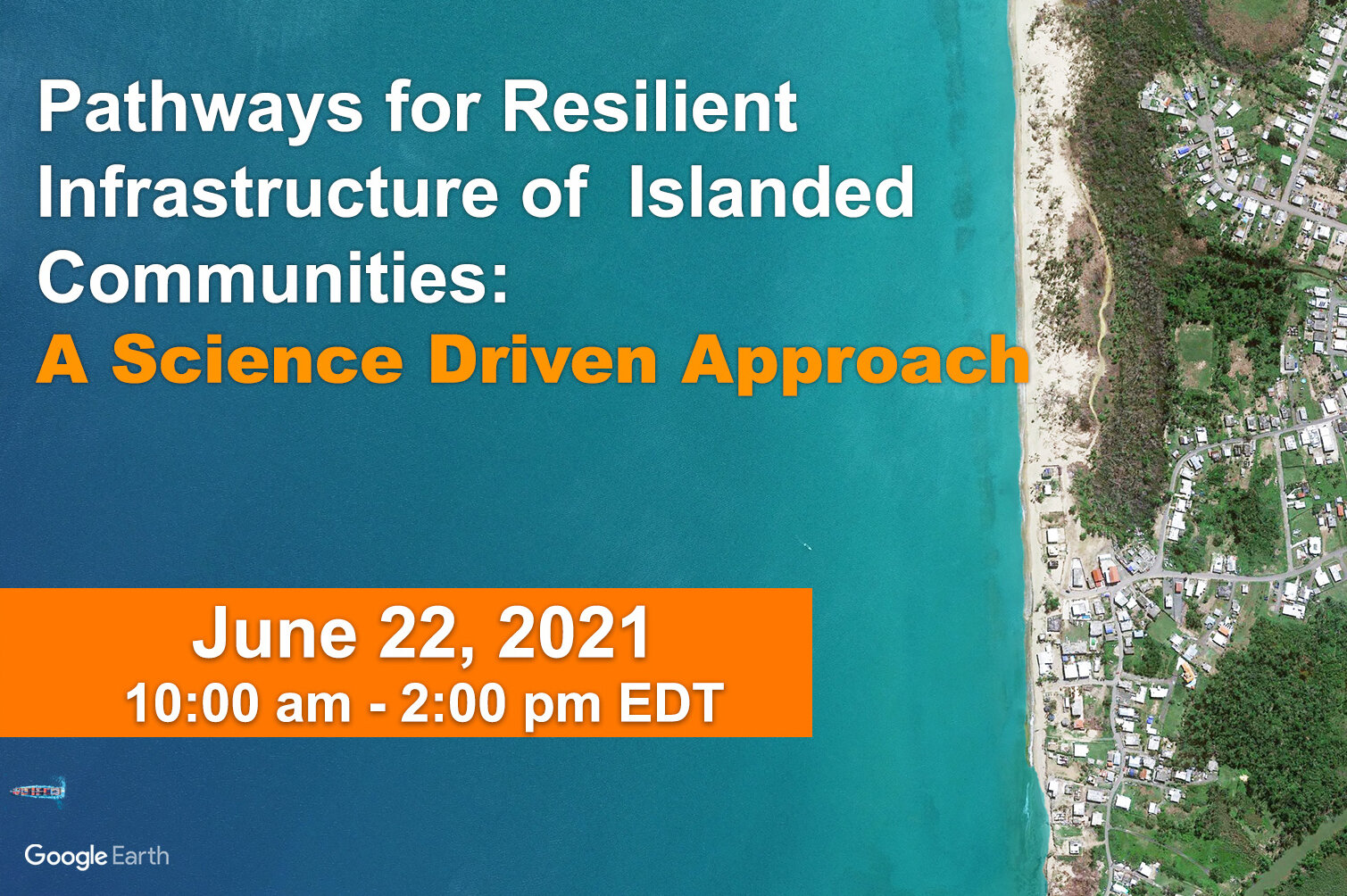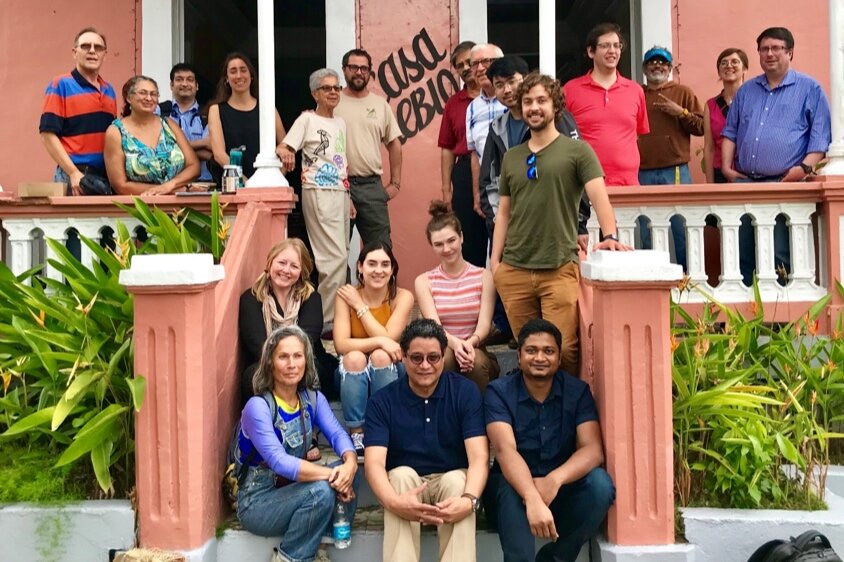Recent extreme weather events in the eastern American coastlines and the Caribbean highlight the impact of the interdependencies of critical infrastructure systems when exposed to weather extremes, and how those interdependencies cause failures of physical assets leading to adverse impacts on the health and socio-economic wellbeing of the communities in those regions. A recent example is the extraordinary case of the island of Puerto Rico (PR), in the direct path of Hurricane Maria, and the near total failure of lifeline infrastructures. This event also exemplifies how extreme events compound endemic physical, social and economic vulnerabilities often present in remote or isolated communities. The associated cascading impacts, prior to and after Hurricane Maria, are clear evidence of our limited knowledge and readiness to anticipate risks in these complex engineered, physical and human systems. This reveals the urgent need to develop scientific and social frameworks and methodologies by which communities can assess their existing preparedness to extreme climatic events, and through a multi-stakeholder engagement process and engineering analysis, evaluate and implement alternative measures to enhance the resiliency of such communities. Using PR as the case study, we propose to develop a data driven modeling framework for understanding the complex physical and social vulnerabilities, and interdependencies that resulted in near total failure of the physical systems.
The research questions we aim to address include: a) How does socio-economic stability, governance and baseline conditions of the infrastructure impact the performance and resiliency of critical interdependent infrastructure systems in extreme weather conditions? b) What knowledge and methods are needed to guide strategies for enhancing system resiliency and restoration in islanded communities? c) How can we engage and inform experts and stakeholders about enhancing resiliency and effective failure mitigation strategies? We shall achieve these objectives by first implementing a data driven process of gathering human narratives as social data and a source of information to recreate the timeline and experience of Hurricane Maria, before, during and after the event. We seek to develop an integrated modeling and simulation framework, based on multi-layer distribution network theory. This framework will include the structural-based assessment results in the modeling of infrastructure behavior during and after a disaster. The focus of our study will be on the interdependencies of the electrical power, water distribution and communications systems. Our objective is to recreate the event using combination of system network models, geophysical data, and community data, to capture the sequence of the cascading failures and the corresponding societal impact as the event unfolded and during post-event recovery efforts. We seek to arrive at a level of understanding of this system of systems that will lead to informed solutions and recommendations that will minimize adverse impact, disruption, loss of life and suffering, in the face of future extreme events. We aim to address these emerging and novel challenges, provide the foundation for assessment of risk scenarios with the potential to increase overall resiliency for vulnerable of coastal communities.
This material is based upon work supported by the National Science Foundation under Grant No. 1832678. Any opinions, findings, and conclusions or recommendations expressed in this material are those of the author(s) and do not necessarily reflect the views of the National Science Foundation.


















